Thucydides and the Peloponnesian War
Study the Peloponnesian War with renowned classicist and historian Donald Kagan.
June 24 – July 7, 2018
Washington, DC
What makes political leaders great? In this two-week seminar, students will examine the idea of statesmanship through a classic text on the subject — Plutarch’s Lives — and then turn to a study of the speeches and deeds of America’s greatest statesman: Abraham Lincoln.
Over the first week, led by Professor Hugh Liebert, author of Plutarch’s Politics, students will study selections from Plutarch’s Parallel Lives. A “bible for heroes,” as Emerson put it, the Lives aimed to shape readers’ souls by uncovering the virtues and vices of the greatest Greeks and Romans. But the Lives were far from works of hagiography. They were a reflection on the fundamental problems of politics: the nature of republican government, the temptations of empire, the rise and fall of regimes. It was not only for inspiration, but for instruction in such matters that American statesmen like Hamilton, Lincoln, and Truman turned to Plutarch. This week will approach the Lives in their spirit. Students will read three pairs of Lives – Solon/Publicola, Pericles/Fabius, and Phocion/Cato – in order to consider how the birth, peak, and fall of republican regimes reveal the nature of statesmanship.
The second week, led by Professor Diana Schaub, delves into the American essence through reflection on Abraham Lincoln’s speeches and writings. Lincoln is often credited with having saved or re-founded the American Union by giving it a “new birth of freedom.” He is also often recognized as the creator of a new form of public speech. In this course, students will seek to understand Lincoln’s statecraft in conjunction with his literary craft. Throughout the course, students will inquire into the nature of political debate and argument, the role of passion and reason in public speech, and the legacy of the Founding (with particular reference to the issue of slavery).
Image: Philipp Foltz, Pericles’ Funeral Oration, 1877
Diana Schaub on Lincoln's political thought
This two-week course will take place in Washington, DC. It is a full-time commitment for Monday–Friday, with required sessions in the morning, afternoon, and some evenings.


Hugh Liebert is a Professor of American Politics in the Department of Social Sciences at the United States Military Academy in West Point, New York, where he teaches courses in political philosophy, American politics, and civil-military relations.
Dr. Liebert is the author of Plutarch’s Politics (2016, Cambridge University Press), which won the Delba Winthrop Award for Excellence in Political Science. He has also edited several volumes: Executive Power in Theory and Practice (2012, Palgrave Macmillan); Thinking Beyond Boundaries: Transnational Challenges to U.S. Foreign Policy (2014, Johns Hopkins University Press); American Grand Strategy and the Future of U.S. Landpower (2014, U.S. Army War College Press); What Is the Worst That Can Happen? The Politics and Policy of Crisis Management (2016, Sloan); and Confronting Inequality: Wealth, Rights, and Power (2016, Sloan). His articles have appeared in History of Political Thought, Review of Politics, and Armed Forces & Society.
He received his BA from Harvard University and his MA and PhD from the Committee on Social Thought at the University of Chicago.

Diana Schaub is a nonresident senior fellow at the American Enterprise Institute (AEI), where her work is focused on American political thought and history, particularly Abraham Lincoln, Frederick Douglass, African American political thought, Montesquieu, and the relevance of core American ideals to contemporary challenges and debates. Concurrently, she is Professor Emerita of Political Science at Loyola University Maryland, where she taught for almost three decades.

Diana Schaub is a nonresident senior fellow at the American Enterprise Institute (AEI), where her work is focused on American political thought and history, particularly Abraham Lincoln, Frederick Douglass, African American political thought, Montesquieu, and the relevance of core American ideals to contemporary challenges and debates. Concurrently, she is Professor Emerita of Political Science at Loyola University Maryland, where she taught for almost three decades.
An expert in political philosophy, Dr. Schaub has lectured on a variety of topics and participated in conferences around the country. She has contributed chapters to multiple books on Shakespeare, liberal education, women, and religion, and she is the author of three books: His Greatest Speeches: How Lincoln Moved the Nation (St. Martin’s Press, 2021); What So Proudly We Hail: The American Soul in Story, Speech, and Song, coedited with Amy and Leon Kass (ISI Books, 2011); and Erotic Liberalism: Women and Revolution in Montesquieu’s “Persian Letters” (Rowman & Littlefield, 1995). Her monograph Emancipating the Mind: Lincoln, the Founders, and Scientific Progress (AEI, 2018) is based on her remarks at the 2018 Walter Berns Constitution Day Lecture.
Dr. Schaub has also been published in the popular press, including in the Baltimore Sun, the Claremont Review of Books, Commentary, and the Wall Street Journal.
Dr. Schaub has a PhD and an MA in political science from the University of Chicago. Her BA in political science is from Kenyon College.
Readings:
Discussion Questions:
Readings:
Discussion Questions:
Readings:
Discussion Questions:
Readings:
Discussion Questions:
Readings:
Discussion Questions:
Recommended Reading:
Lincoln and the Constitution, What So Proudly We Hail
Readings:
Discussion Questions:
Readings:
Discussion Questions:
Readings:
Discussion Questions:
Readings:
Discussion Questions:
Readings:
Discussion Questions:
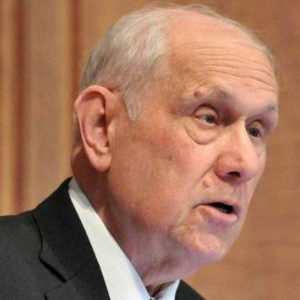
Donald Kagan
Donald Kagan was the Sterling Professor Emeritus of Classics and History at Yale University. His four-volume History of the Peloponnesian War is the leading scholarly work on the subject. He was also the author of many books on ancient and modern topics, including On the Origins of War and the Preservation of Peace.

Hugh Liebert
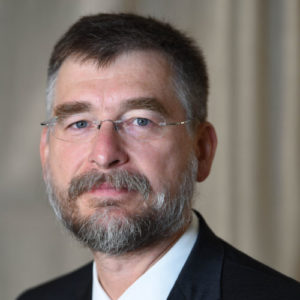
Jakub J. Grygiel
Jakub Grygiel is an Associate Professor at the Catholic University of America. From 2017–18, he was a member of the Policy Planning Staff at the U.S. Department of State. His most recent book is Return of the Barbarians: Confronting Non-State Actors from Ancient Rome to the Present.

Vickie Sullivan
Vickie Sullivan is the Cornelia M. Jackson Professor of Political Science and teaches and studies political thought and philosophy. She also maintains teaching and research interests in politics and literature. She has published extensively on Montesquieu and Machiavelli and is the co-editor of Shakespeare’s Political Pageant.

Darren Staloff
Darren Staloff is a retired Professor of History from the City College of New York and the Graduate Center of CUNY. Professor Staloff has published numerous papers and reviews on the subject of early American history.
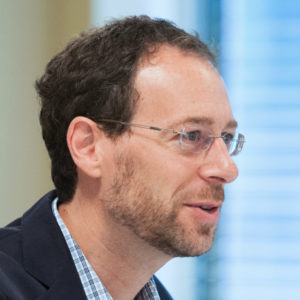
Bryan Garsten
Bryan Garsten is Professor of Political Science at Yale University. He writes on questions about political rhetoric and deliberation, the meaning of representative government, the relationship of politics and religion, and the place of emotions in political life.
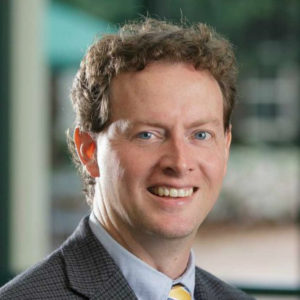
Benjamin Storey
Benjamin Storey is a senior fellow in Social, Cultural, and Constitutional Studies at the American Enterprise Institute (AEI), and co-director of AEI’s Center for the Future of the American University. He is concurrently an SNF Agora Fellow at Johns Hopkins University and a research fellow at the Civitas Institute at the University of Texas at Austin.
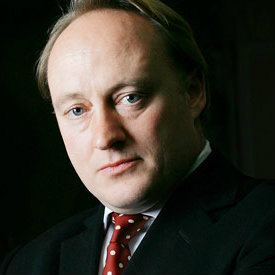
Andrew Roberts
Andrew Roberts is presently a Visiting Professor at the War Studies Department at King’s College, London and the Lehrman Institute Lecturer at the New-York Historical Society. He is the author or editor of numerous books, including Masters and Commanders, which won the Emery Reves Award of the International Churchill Society and was shortlisted for The Duke of Westminster’s Gold Medal for Military History and The British Army Military Book Award. He is presently writing a biography of Sir Winston Churchill.